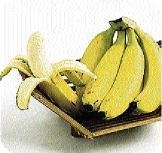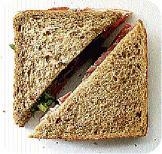Eating well and living with HIV
Published: Saturday | December 12, 2009


World AIDS Day, observed December 1, was a tremendous success based on the number of persons who were tested for HIV. If tests show you or a family member has the virus, you can rest assured that you or the person can live with the virus if special attention is paid to eating well, exercising, and taking medication and following all the other prescriptions for living with HIV.
Good nutrition is vital to good health for everybody. For centuries, food has provided a range of complex chemicals, micronutrients, vitamins and enzymes. The ancient scriptures of India, as early as 5000 BC, documented the relationship between food and healing. The Mediaeval Church recorded the relationship between crop failures, famines and epidemics (www.holisticonline.com).
Richard P. Huemer, MD, author of The Natural Health Guide to Beating the Super Germs, wrote that HIV infection disturbs the nutrient levels in the body. He adds, "If you feed yourself with the right 'foods', you can influence the regeneration process. You can help your body back to a healthy state that can fight the external attackers." (www.holisticonline.com)
Studies have shown that persons living with HIV and who eat healthily are better able to tolerate drugs, maintain weight and muscle mass more easily compared to HIV-positive persons on a poor diet. Nutrients - proteins, minerals, vitamins, carbohydrates and fats - all have important functions in keeping the body healthy by building and repairing cells, keeping hormones regulated, fighting infection and providing energy.
HIV may affect your nutritional status if your eating patterns change and if you have difficulty digesting and absorbing nutrients. HIV-related problems include weight loss, muscle wasting, excessive levels of fats and sugars in the blood and vitamin and mineral deficiencies.
To prevent nutritional changes while living with HIV, a healthy diet is critical to an HIV-treatment plan. Your daily diet should provide nutrients to:
Fight weight and muscle loss.
Keep energy levels high.
Provide protection from minerals and vitamins.
Maximise the benefits of your medication.
Minimise the effects of the HIV medication you have to take.
Weight maintenance
With HIV infection, the body burns more calories than normal. However, if you are burning more calories than you consume, you will lose weight. Eventually, this weight loss will lead to malnutrition. To prevent weight loss, HIV-positive persons will need a higher daily caloric intake. Though you may feel nauseous and lack appetite, you will need to ask your doctor to prescribe medication to control nausea and open up your appetite.
Carbohydrates: Be sure to have adequate amounts of carbohydrate-rich foods to provide the energy you need. Carbohydrate sources include wholewheat bread, high-grain cereals, ground provisions, brown rice and pasta.
Fight muscle loss
Protein: To build and maintain muscle, high-quality protein and exercise are important. With HIV infection, muscle mass declines because the protein stored is used up as fuel. Persons living with HIV may need one and a half to two times as much protein compared to a person who does not have HIV.
Three servings of protein should be eaten each day from sources like beef, fish, chicken, eggs, pork, legumes and nuts. Animal sources of protein are high in saturated fat and cholesterol, and should be eaten in moderation. It is better to get protein from plant sources such as peas, beans and nuts.
Low-fat diet
A diet low in fat reduces the risk of cardiovascular disease, cancer and diabetes. Soluble fibre helps move food through the digestive system quickly.
Protect your gut
As part of the digestive system, a healthy intestinal tract will help in nutrition of the body from the foods eaten and supplements and medication taken. To keep the intestinal tract healthy and to regulate bowel movements for a healthy gut, you should eat foods like oats, wholegrain bread, legumes, raisins, prunes and other dried fruit.
Water is important in digestion and in the elimination of waste. It is suggested that you consume nine to 11 eight-ounce glassfuls of water a day, as the body's functions rely heavily on water.
Fibre from fresh juices, fruits and vegetable and whole grains can also provide soluble fibre to help in the elimination of waste. It is recommended that you eat at least seven to nine servings of fruits and vegetables per day.
Supplements
Persons with impaired immune systems will need a boost in supplements to build and repair tissues as it is not always possible to get all the minerals and vitamins from food, so often denatured in the food chain (planting, harvesting, storage, and marketing).
Supplements should not replace a well-balanced meal and should be used to provide additional micronutrients needed.
Minimum recommendations should include:
Regular use of a multivitamin with trace elements
B complex
Vitamin C
Avoid junk or fast foods.
These foods are loaded with excessive fats, salt and sugar.
Avoid sugary foods
Excessive sugar can deplete your body of several vitamins and minerals needed for your immune system. Avoid the consumption of refined foods. Sugar impairs the ability of white blood cells to kill bacteria.
FOOD SAFETY
While you practise good nutrition, it is also important to exercise food safety while preparing meals. This helps to decrease the likelihood of contracting infections. Be sure to:
Wash your hands before preparing and eating meals.
Wash fruits and vegetables with clean water and hydrogen peroxide.
Cook meats well and avoid raw meats,
Boil water if you are unsure of the safety of the supply.
Do not eat foods past their expiry date.
Wash cutting boards with soap and hot water after every use.
Use separate cutting boards to prepare meats and vegetables.
Serve hot food hot and cold food cold.
Do not thaw foods outside the refrigerator.
Clean kitchen centres with a bleach solution (nine parts water to one part bleach). Disinfect sponges with a bleach solution, soaking them for five minutes.
There are discomforts associated with being HIV-infected. Metroplex Health and Nutrition Services provides answers to the discomforts.
DISCOMFORTS - WHAT IF?
... your mouth is sore:
Eat foods that are creamy in texture like mashed potato, melted ice cream and yoghurt. It's best to blend all foods, especially in smoothies.
Eat soft food such as macaroni and cheese, stews, custards and soft fruit such as bananas, papaya, mangos and naseberries.
Eat less acidic foods such as citrus fruits, peppery foods and salty foods such as salt fish, rough or grainy foods such as popcorn, chips or raw vegetables.
... your mouth is dry:
Sip juices and fluids throughout the day.
Dunk dry foods in liquids before eating.
Suck on hard candies, ice or sour fruit like tamarind, lime, lemon or sour orange throughout the day.
Moisten foods with extra gravy, margarine, sauce, etc.
... your appetite is poor:
Eat favourite foods.
Drink liquids between, rather than with, the meal or snack
Try new foods to tempt appetite.
Try to eat regularly at the same time each day.
Reduce caffeine intake.
Heather Little-White, PhD, is a nutrition and lifestyle consultant in Kingston. Send feedback to saturdaylife@gleanerjm.com.
Fresh Carrot Juice Smoothie
12oz fresh carrot juice
2 cups of vanilla yoghurt (preferably low-fat)
3tbsps lime juice
1 carrot
8 ice cubes
Combine these smoothie ingredients in a blender:
Pour into a glass and enjoy!
Ginger Garlic Tonic boosts immunity
Try a spoonful of this tonic at the first sign or a cold or flu or take daily as a preventative.
2 cups honey
1/2 cup garlic cloves, peeled and crushed
1/2 cup grated fresh ginger root
Warm honey over very low heat. Do not boil. Place the garlic and ginger in a side-mouthed jar with rubber seal and pour warm honey over them. Mix well and cap tightly.
Store this mixture in a warm sunny window sill and stir daily for three days, then refrigerate. Use within six weeks. You can also make a fine tea with a spoonful of this tonic in warm water or add to a cup of green tea, also full of healthy antioxidants.
